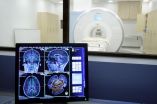11 million will lose health insurance if ACA subsidies are eliminated, study finds
2014-10-21
(Press-News.org) Eliminating subsidies that help low- and moderate-income people purchase coverage through government-run health insurance marketplaces would sharply boost costs for consumers and cause more than 11 million Americans to lose their health insurance, according to a new RAND Corporation study.
Modeling the likely effects of ending subsidies offered to individuals under the federal Affordable Care Act, researchers found that such a move would increase premium costs in the individual marketplaces by as much as 43 percent and cause enrollment to drop by 68 percent.
"If subsidies are eliminated entirely, our research predicts substantial disruption in the individual health insurance market," said Christine Eibner, the study's lead author and a senior economist at RAND, a nonprofit research organization. "Without the subsidies, prices would jump sharply and many people simply could not afford to enroll."
The research suggests that an ACA-compliant market that did not provide tax credits to low-income people would consist of a relatively small number of high-risk individuals, which would drive prices higher and prevent the majority of potential enrollees from purchasing affordable coverage.
The tax subsidies have been challenged in court on the grounds that the wording of the law allows such aid only to those people who buy policies through state-run marketplaces. (Marketplaces in most states are operated by the federal government.) This issue is now being considered by several federal courts across the nation.
Eibner and study co-author Evan Saltzman used an updated version of the RAND COMPARE microsimulation model, which predicts the effects of health policy changes at state and national levels, to estimate the effects that eliminating subsidies and other potential changes would have on premiums and enrollment in the individual health insurance market in 2015.
The analysis found that ending the mandate requiring individuals to have health coverage would cause enrollment in the individual market to fall by more than 20 percent, with 8.2 million Americans becoming uninsured. While premiums would rise by just 7 percent, the sharp decline in enrollment suggests the mandate is important to achieving the Affordable Care Act's goal of near-universal medical coverage, according to RAND researchers.
The study's findings underscore the effects that both the tax subsidies and the individual mandate have in encouraging healthy people to enroll in the individual health insurance market. Such strategies are key to keeping prices stable and avoiding a scenario where only sick people sign up for individual health insurance.
The study also modeled the impact of replacing the tax subsidies, which cap individual spending as a percentage of income, with vouchers or other programs that would provide a fixed government subsidy.
Replacing the existing subsidies with alternatives such as vouchers would make the health insurance marketplaces more sensitive to changes in the age mix of those enrolling, according to the study. For example, with vouchers instead of tax credits, each 1 percentage point reduction in young adult enrollment would trigger a premium increase of about three-quarters of 1 percent on the insurance marketplaces. A 1 percentage point reduction in young adult enrollment would trigger a smaller premium change -- less than one-half of 1 percent -- with the ACA's current tax credit structure.
The report, "Assessing Alternative Modifications to the Affordable Care Act: Impact on Individual Mark Premiums and Insurance Coverage," is available at http://www.rand.org. The research was sponsored by the Office of the Assistant Secretary for Planning and Evaluation in the U.S. Department of Health and Human Services.
INFORMATION:
RAND Health is the nation's largest independent health policy research program, with a broad research portfolio that focuses on health care costs, quality and public health preparedness, among other topics.
ELSE PRESS RELEASES FROM THIS DATE:
2014-10-21
Two Michigan high school students, sisters Ilina and Medha Krishen, have developed screening tools using electronic stethoscopes to detect lung and heart disease. The sisters will present their findings at CHEST 2014 in Austin, Texas next week.
Ilina Krishen became aware of the dangers of smoking and chemical air pollution when she saw the effects of lung disease on family members. Curious to find a way to detect early lung damage in people exposed to noxious air pollutants, Ilina, a high school senior at Port Huron Northern High School in Michigan, developed a screening ...
2014-10-21
Adults typically believe that life gets better — today is better than yesterday was and tomorrow will be even better than today. A new study shows that even depressed individuals believe in a brighter future, but this optimistic belief may not lead to better outcomes. The findings are published in Clinical Psychological Science, a journal of the Association for Psychological Science.
The research shows that middle-aged adults who had a history of depression tended to evaluate their past and current lives in more negative terms than did adults without depression, ...
2014-10-21
TORONTO, Oct. 21, 2014--Controlling the Ebola virus outbreak at the source in West Africa is the most effective way to decrease international risk of transmission, according to a research paper published today in The Lancet.
If the epidemic persists and grows, it's likely there will be more cases of the deadly virus exported to other countries, including Canada, via air travel, said Dr. Kamran Khan, a physician and researcher at St. Michael's Hospital.
Dr. Khan, who examines global airline travel patterns to predict the spread of diseases, said that every month, three ...
2014-10-21
VIDEO:
In this video, a Salk researcher explains how cancer evolves to become drug resistant.
Click here for more information.
LA JOLLA—Like a colony of bacteria or species of animals, cancer cells within a tumor must evolve to survive. A dose of chemotherapy may kill hundreds of thousands of cancer cells, for example, but a single cell with a unique mutation can survive and quickly generate a new batch of drug-resistant cells, making cancer hard to combat.
Now, scientists ...
2014-10-21
PENSACOLA, Fla. – Ospreys do not carry significant amounts of human pharmaceutical chemicals, despite widespread occurrence of these chemicals in water, a recent U.S. Geological Survey (USGS) and Baylor University study finds. These research findings, published by Integrated Environmental Assessment and Management is the first published study that examines the bioaccumulation of pharmaceuticals in the water-fish-osprey food web.
Pharmaceuticals have been finding their way into the environment, primarily through wastewater, urban runoff and even biosolids applied ...
2014-10-21
JACKSONVILLE, Fla. — After following breast cancer patients for an average of eight-plus years, researchers say that adding trastuzumab (Herceptin) to chemotherapy significantly improved the overall and disease-free survival of women with early stage HER2-positive breast cancer.
They found that the use of trastuzumab produced a 37 percent improvement in survival and a 40 percent reduction in risk of cancer occurrence, compared to patients treated with chemotherapy alone.
These findings, published in the Journal of Clinical Oncology, demonstrate how important ...
2014-10-21
A new study, which may have implications for approaches to education, finds that brain mechanisms engaged when people allow their minds to rest and reflect on things they've learned before may boost later learning.
Scientists have already established that resting the mind, as in daydreaming, helps strengthen memories of events and retention of information. In a new twist, researchers at The University of Texas at Austin have shown that the right kind of mental rest, which strengthens and consolidates memories from recent learning tasks, helps boost future learning.
The ...
2014-10-21
ANN ARBOR, Mich. — Scientists have restored the hearing of mice partly deafened by noise, using advanced tools to boost the production of a key protein in their ears.
By demonstrating the importance of the protein, called NT3, in maintaining communication between the ears and brain, these new findings pave the way for research in humans that could improve treatment of hearing loss caused by noise exposure and normal aging.
In a new paper in the online journal eLife, the team from the University of Michigan Medical School's Kresge Hearing Research Institute and ...
2014-10-21
PHILADELPHIA – Blue light can both set the mood and set in motion important biological responses. Researchers at the University of Pennsylvania's School of Medicine and School of Arts and Sciences have teased apart the separate biological responses of the human eye to blue light, revealing an unexpected contest for control. Their work addresses the properties of melanopsin, a light-sensitive protein in the eye that establishes the rhythm of our day-night cycle and the familiar constriction of the pupil to bright light. They measured the pupil response to stimulation ...
2014-10-21
WASHINGTON, DC – October 20, 2014 -- Lactobacillus species, commonly seen in yogurt cultures, correlate, in the guts of mouse models, with mitigation of lupus symptoms, while Lachnospiraceae, a type of Clostridia, correlate with worsening, according to research published ahead of print in Applied and Environmental Microbiology. "Our results suggest that the same investigation shold be performed in human subjects with lupus," says principal investigator Xin Luo of Virginia Tech, Blacksburg, VA.
In the study, the investigators first showed that mouse models of lupus ...
LAST 30 PRESS RELEASES:
[Press-News.org] 11 million will lose health insurance if ACA subsidies are eliminated, study finds






